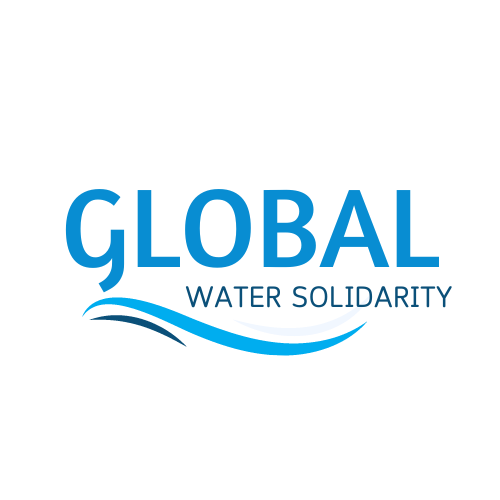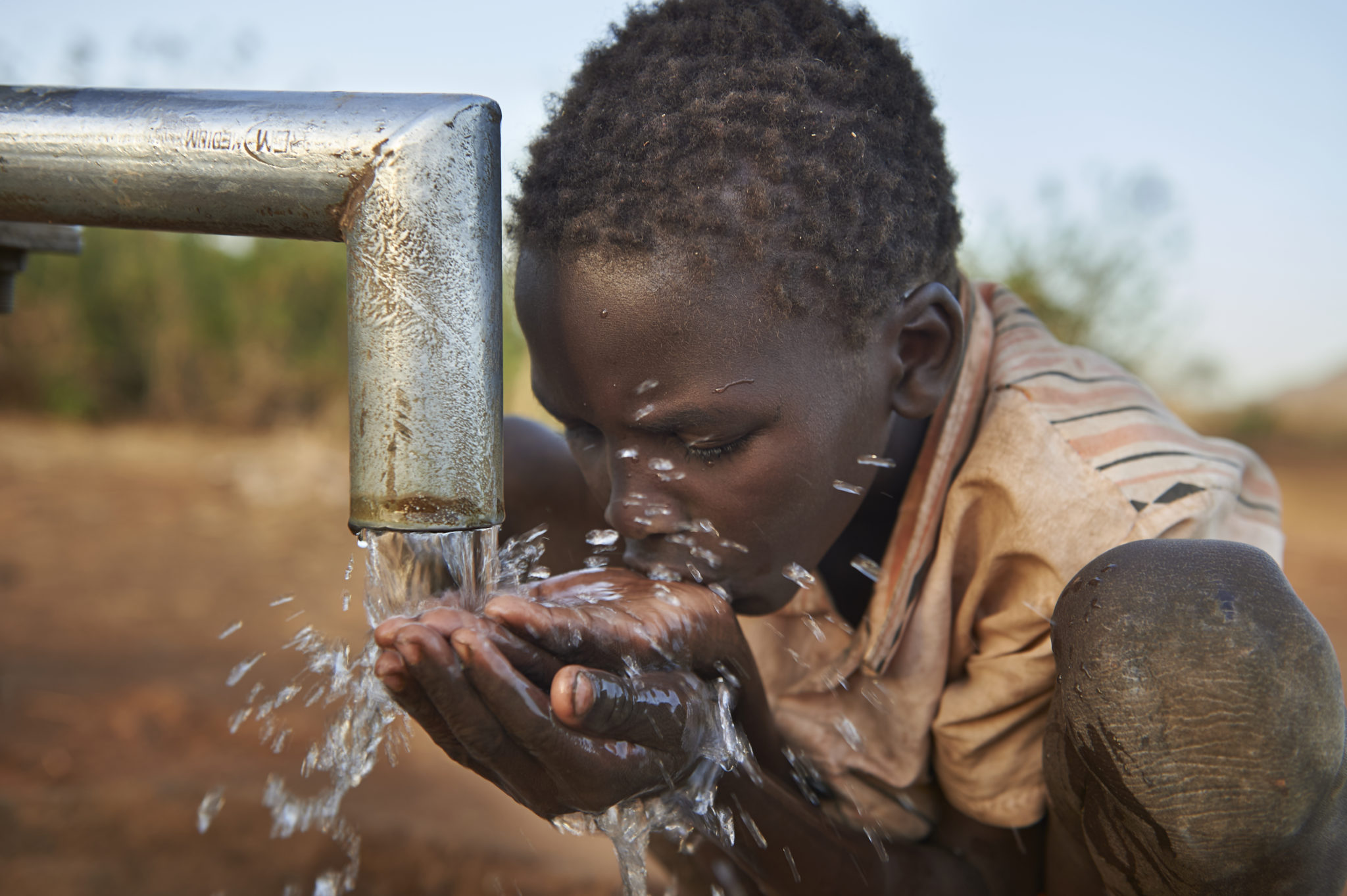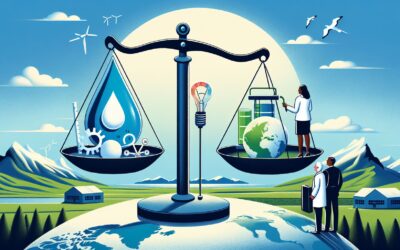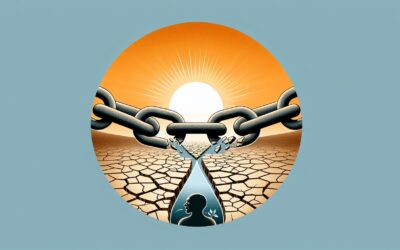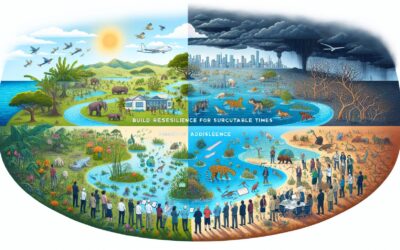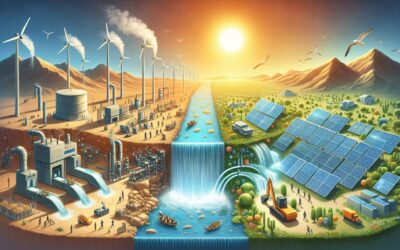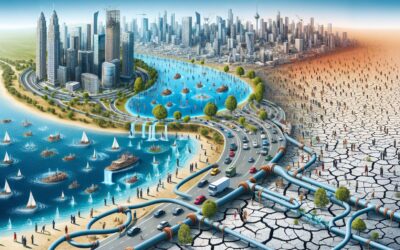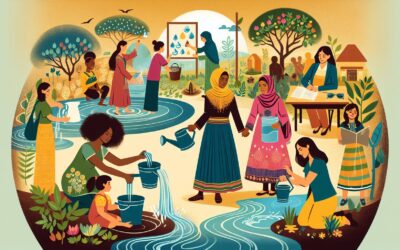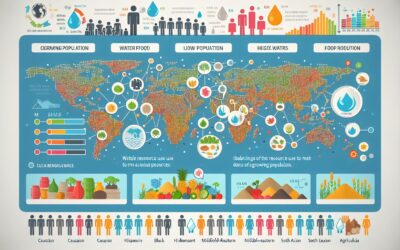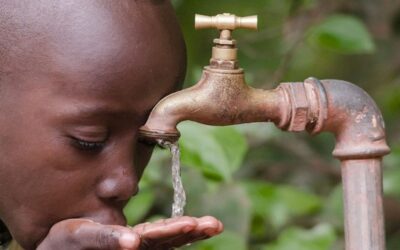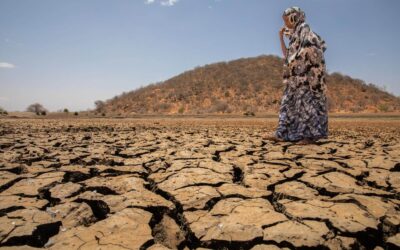About Us
Water solididarity
Make a Donation
Join the Movement
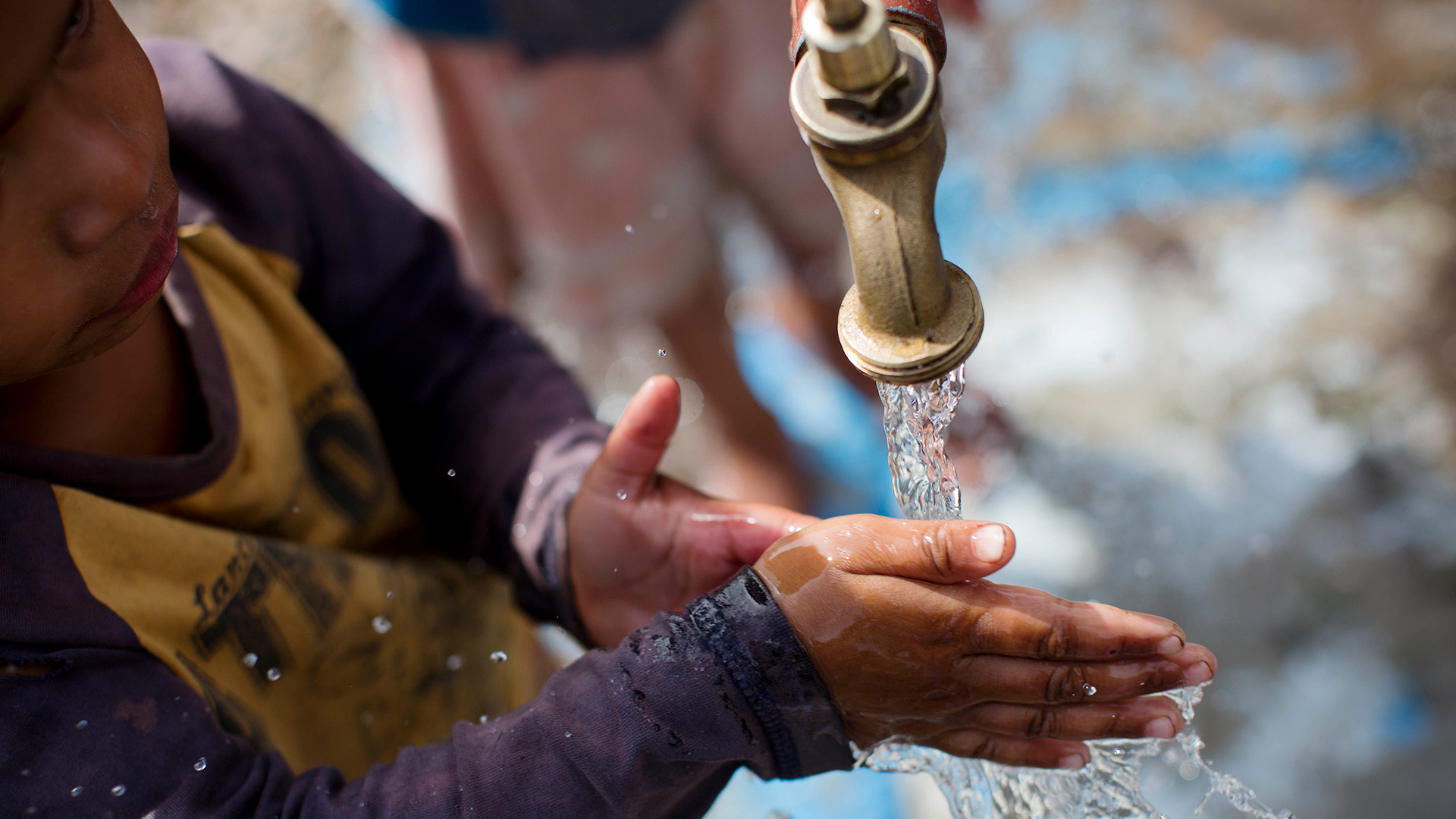
Water Solidarity
Key Components of Water Solidarity:
Shared Responsibility: Water solidarity calls for a shared responsibility among individuals, communities, organizations, and governments to manage and conserve water resources.
Recognizing that the impacts of water-related challenges extend beyond borders, fostering a collective sense of duty is crucial.
Equitable Access: Ensuring equitable access to clean and safe water is a fundamental aspect of water solidarity. This involves addressing disparities in water distribution, especially in regions where access to adequate water infrastructure is lacking. Bridging these gaps requires global cooperation and targeted efforts to uplift marginalized communities.
Collaborative Projects: Water solidarity is exemplified through collaborative projects that bring together experts, stakeholders, and communities to develop innovative solutions. These projects may involve the implementation of water purification technologies, watershed management initiatives, and infrastructure development to enhance water availability.
All Current Campaigns
Challenges and Opportunities
Dollars Raised
Volunteers
Contributors
Animals Saved
Trees Planted
Cities
Trained Farmers
Years
Our Blog
The Water-Energy Nexus: Balancing Sustainability and Development
The issues of sustainability and development have been a vital part of the conversation around contemporary global challenges. But where does water fit into this larger picture? Understanding the interconnected roles of water and energy provides a clear insight into the delicate balance we must strike to ensure a sustainable future. The water-energy nexus is an important concept to understand and address this balance [1].
What is the Water-Energy Nexus?
The water-energy nexus refers to the relationship between the water used for energy production, like hydroelectric, nuclear, and thermoelectric power, and the energy used to extract, purify, and distribute water. This nexus creates a complex interdependence between these two vital resources. For instance, approximately 15% of global water withdrawals are used for energy production. On the other hand, about 8% of the global energy generation is used for pumping, treating, and transporting water [2].
Sustainability and Development: Two Sides of the Same Coin
It is impossible to consider sustainable development without particular attention to water and energy management. Both sectors are crucial to poverty eradication, economic growth, public health, and food security. The dilemma lies in achieving development objectives while simultaneously preserving the environment. For example, the transition to renewable energy often requires increased water use, leading to potential conflicts with other water users, especially in regions under water stress. Therefore, the path to sustainable development necessitates a delicate balance within this nexus.
Energy Choices and Water Sustainability
The energy choices we make have profound implications on water resources. The power generation sector is notably water-intensive. Varieties of energy production like fracking and biofuels can place a high demand on water resources and even contribute to water pollution. Planning and innovation in energy production is vital to manage water use sustainability.
Water Management and Energy Efficiency
Conversely, the process of delivering clean water is also energy-intensive. Significant amounts of energy are required to extract, treat, and distribute water, as well as to heat and use it. Enhancing the infrastructure for water supply can be helpful. For example, reducing leaks in city distribution systems can save a lot of energy that is otherwise wasted. Moreover, greater energy efficiency could decrease the pressure on water resources.
Innovations in the Water-Energy Nexus
Technology offers promise to decouple the activities in the water-energy nexus, leading to more efficient use of both resources. For example, the installation of advanced water meters can provide users with real-time information about their water use, encouraging conservation. Furthermore, desalination technologies that leverage renewable energy can both provide fresh water and mitigate climate change. Research and development into innovative, low-energy treatment methods such as anaerobic treatment systems are also a promising way forward.
Policies Towards an Integrated Approach
Policies have a crucial role in managing the water-energy nexus. Integrated planning can help protect water and energy resources, aligning sectoral policies and facilitating coordination among stakeholders. For instance, the design of long-term scenarios can help in identifying key trends and trade-offs, stimulating proactive measures to overcome challenges and seize opportunities. Inclusive, preventive and anticipatory policies are more likely to create a win-win situation for water, energy, and climate change adaptation.
Conclusion
Balancing the water-energy nexus is crucial to achieving sustainable development. It calls for an integrated and comprehensive approach – leveraging technology, informed policy-making, and responsible behaviour. Understanding the water-energy nexus offers a guiding principle to help us navigate the complexity of resource management in our path toward a more sustainable and equitable world. Our future depends on our ability to balance sustainability and development within the context of this nexus. It is not merely a choice – it is an imperative.
Groundwater Depletion: The Hidden Threat to Global Water Security
Groundwater depletion constitutes one of the most overlooked aspects of the global water crisis. In a world increasingly plagued by water stress and scarcity, groundwater depletion emerges as a significant and silent threat, worsening the global water security situation.
What is Groundwater?
Groundwater, as the name suggests, is the fresh water found beneath the Earth’s surface, typically in aquifers, which are porous rocks that can contain or transmit groundwater. It plays a vital role in sustaining rivers, lakes, and ecosystems and ensuring the availability of fresh water for human consumption and agricultural activities.
Current State of Groundwater Depletion
According to the United Nations, over 2 billion people across the world depend on groundwater for drinking and irrigation[^1^]. An alarming rate of depletion has been observed in many parts of the world in recent decades, largely due to over-extraction for irrigation, urban development, and industrial use. The issue is compounded by factors like population growth and climate change, which exacerbate water scarcity and necessitate further groundwater use.
Groundwater Depletion’s Impact on Aquatic Ecosystems
Apart from human water supply, many aquatic ecosystems depend on groundwater for their survival. Groundwater feeds into lakes, wetlands, streams, and rivers, supporting both aquatic and terrestrial ecosystems. When groundwater is depleted, these ecosystems often experience drastic changes that can threaten biodiversity. Changes in the groundwater level can lead to reduced surface water, diminishing the quality and quantity of aquatic habitats.
Groundwater Over-Extraction, Quality, and Contamination
A significant contributor to groundwater depletion is over-extraction, mainly due to agricultural, municipal, and industrial activities. Over-extraction can lead to land subsidence, the sinking of the Earth’s surface, which poses significant risks to infrastructure and can lead to increased flooding.
Another essential consideration regarding groundwater is contamination. Natural contaminants can enter groundwater from the soil and rock surrounding aquifers. Moreover, human activities such as agriculture, waste disposal, and industrial processes can pollute groundwater with harmful substances. Contaminated groundwater is hazardous for consumption and can have severe health repercussions.
The Socioeconomic Impact of Groundwater Depletion
From an economic perspective, the cost of pumping water increases as groundwater levels fall, affecting small-scale farmers and rural communities who rely on wells for their water supply. Furthermore, the depletion of groundwater can lead to a lack of availability of clean water necessary for farming and livestock, critically impacting agricultural produce and increasing food insecurity.
Consequentially, the social implications are catastrophic, particularly for vulnerable groups. Lack of access to water can exacerbate poverty, lead to displacement of people, and increase the risk of conflict over scarce resources.
Mitigating Groundwater Depletion: Policies and Management Practices
Addressing groundwater depletion requires effective policies, sustainable management practices, and improved public awareness about groundwater conservation. Governments need to implement comprehensive water policies that include restrictions on over-extraction, encourage water conservation practices, invest in water-efficient technologies, and robust mechanisms for monitoring and enforcement.
Furthermore, there’s a need for stronger cooperation on an international level, particularly in regions where groundwater resources cross national borders. The exchange of information, best practices, and technological advancements can go a long way in managing these shared resources sustainably.
The Way Forward
In conclusion, addressing groundwater depletion is a critical aspect of ensuring global water security. By understanding the causes, impacts, and potential mitigation strategies, we can contribute to water conservation efforts and safeguard this essential resource for future generations. While the journey ahead presents significant challenges, there is a growing global recognition of the issue, grass-root level efforts, and technological advances that give hope for a sustainable future for our water resources.
[^1^]: “Groundwater”, United Nations, https://www.unwater.org/water-facts/groundwater/
[^2^]: “Groundwater depletion”, US Geological Survey, https://www.usgs.gov/special-topic/water-science-school/science/groundwater-depletion?qt-science_center_objects=0#qt-science_center_objects
The Water-Poverty Nexus: Breaking the Cycle of Deprivation
Water is a fundamental need for survival, deeply intertwined with each aspect of human life – health, food security, energy, and even climate change. However, the distribution of this vital resource is far from even. Across the globe, the cruel irony persists that while water is present in abundance, its access is denied to billions of people, primarily as a direct result of poverty. This intersection between water scarcity and poverty constitutes the “Water-Poverty Nexus”. This article delves into this critical issue, identifies the links that perpetuate this cycle of deprivation, and explores potential solutions to break this vicious cycle.
The Water-Poverty Connection
Broadly speaking, those who lack access to clean water and sanitation services are often the same people grappling with poverty. This is mainly due to the fact that adequate water infrastructure needs economic resources to build and maintain. Water also plays a critical role in economic activities, particularly agriculture, which sustains many low-income communities. This implies that the lack of water can directly contribute to and perpetuate poverty, forming the water-poverty nexus.
The Consequences of the Water-Poverty Nexus
The water-poverty nexus perpetuates a cycle of deprivation in several ways, impacting the most vulnerable communities the hardest.
Health implications: Lack of access to clean water leads to poor hygiene and increased risk of diseases such as cholera, dysentery and typhoid. Globally, an estimated 297,000 children under five die annually from diarrhoea as a result of poor sanitation, poor hygiene, or unsafe drinking water[^1^]. Illness further exacerbates poverty by reducing school attendance and work capacity.
Lost economic opportunities: Safe water access is critical for activities that drive local economies – such as farming, fishing, and small businesses. Water scarcity can limit these activities, and by extension, economic growth.
Education and gender disparity: Women and girls often bear the burden of fetching water in water-scarce communities, walking kilometers daily. This takes time away from education and other productive activities, perpetuating gender disparities and ultimately impacting the community’s development.
Breaking the Vicious Cycle
A multi-faceted approach is needed to break the water-poverty cycle, considering both the supply and demand aspects of the issue.
Investment in water infrastructure: To ensure reliable access to water, significant capital investment in water infrastructure is essential. This includes not only the building of new facilities but also the critical maintenance of existing ones.
Innovative financing mechanisms: Given that public funds are often insufficient to meet the vast needs for water infrastructure, alternative financing mechanisms have to be explored. These could range from regional development banks, impact investing to public-private partnerships.
Community involvement: Community-led initiatives have shown promise in managing local water resources efficiently. Empowering communities to take a lead ensures services are designed to meet their specific needs and are hence more sustainable in the long run.
Water stewardship: Encouraging businesses to adopt responsible water practices can relieve stress on local water resources. This aspect of corporate social responsibility implies using water efficiently and supporting initiatives to improve access to water in their areas of operation.
Climate change adaptation: With climate change exacerbating water scarcity, it brings a new urgency to these efforts. Policies must be designed to maintain the resilience of water resources in the face of climatic uncertainties.
The water-poverty nexus is a complex challenge that extends beyond mere access to water. It represents an intersectional problem that is tangled with socio-economic and environmental circumstances. Therefore, solving it involves not just improvements in water services, but also broader efforts to reduce poverty and implement sustainable development.
While the task is undeniably monumental and challenging, the ultimate rewards are worth the effort. Breaking the water-poverty cycle can unlock a world of opportunity for the world’s most vulnerable people, catalyzing progress towards a more prosperous, equitable, and sustainable world.
[^1^]: United Nations Water – Water, Sanitation and Hygiene
[^2^]: World Health Organization – Water Poverty
Water and Ecosystems: Protecting the Lifeblood of Our Planet
The ecosystem, the Earth’s biosphere’s complex collection of all the interacting species, and their surrounding environment, forms the planet’s lifeblood. At the heart of this intricate network pulses water. Through its capacity to provide hydration to countless organisms, enable photosynthesis, and support diverse aquatic environments, water is, undeniably, life’s fundamental prerequisite.
It is disturbing to note, however, that as civilizations advance, the ubiquitous necessity for water in maintaining the digestive system of Earth’s ecosystem faces perilous threats. Consequently, the task of protecting the world’s water resources has escalated into a global duty. Here we delve into the nexus between water and ecosystems, exploring the impacts of their degradation, and the measures required to protect the precious lifeblood of our planet.
The Importance of Water in Ecosystems
Water occupies a crucial role in all ecosystems, not only in aquatic environments. It primarily accelerates biogeochemical cycles — the process through which essential nutrients move from the atmosphere and lithosphere into forms that organisms can use and then recycle them back into the biosphere.
The circulation of water molecules as part of the hydrological cycle helps distribute heat around the planet, ascertaining balance in the world’s climates. It also brings about changes in season and weather patterns, sculpting landscapes and ecosystems [^1^].
In freshwater ecosystems, water supports an array of life forms – from tiny plankton and invertebrates to larger animals, such as fish, birds, and mammals.
Conversely, in terrestrial ecosystems, plants’ capacity to draw water from the soil and transport it to their leaves sustains the process of photosynthesis. The availability and consistency of water in a region largely predetermine its climate and the life forms it can sustain.
The Impact of Water Degradation on Ecosystems
Unfortunately, human activities have slowly but steadily eroded the life-sustaining value of water in ecosystems.
Firstly, increased pollution levels in water bodies have devastated the ecosystem. Waste dumping, agricultural runoff, and industrial effluents render the water toxic for all forms of aquatic life. The introduction of excessive nutrients (eutrophication) leads to algal blooms that deprive the water of oxygen, culminating in the elimination of other species.
Secondly, excessive extraction of groundwater disrupts the water table, drying up springs and wells. This also causes the death of wetland ecosystems that depend on groundwater [^2^].
Thirdly, climate change casts an ominous shadow. Desertification and changes in precipitation patterns induced by global warming undermine aquatic and terrestrial ecosystems. Rising sea temperatures are causing the bleaching of coral reefs, destroying entire marine ecosystems.
Safeguarding Ecosystems by Protecting Water
Addressing the ecosystem crisis requires actions that promote sustainable use of water, ensuring that its vital role within ecosystems is acknowledged and safeguarded.
Governments, industries, and local communities can limit pollution by adopting eco-friendly practices. These range from committing to cleaner manufacturing processes to implementing sustainable agricultural practices. Using wastewater in a more sustainable way, through recycle and reuse, could mitigate water pollution and restore the quality of water in our ecosystems [^2^].
Further, integrating technology can significantly contribute to the conservation of water and ecosystems. Tech innovations that enable efficient water use and lower wastage, due to leaks and inefficient systems, can help us preserve water for maintaining the healthy functioning of ecosystems.
We also need to propagate the efficient use of water. Simple changes like reducing unnecessary water usage and water-friendly farming practices can make a substantial difference in preserving water for ecosystems.
The management of ecosystems, particularly watersheds, will require principles of cooperation. From inter-country river management treaties to local arrangements for wetland preservation, cooperative mechanisms can bear fruit and protect ecosystems in the long term.
Protecting water and ecosystems isn’t only a matter of saving our planet. It’s also about protecting ourselves and future generations. After all, by damaging ecosystems, we only undermine the very world that gives us life and sustenance.
Conclusion
Preserving the integrity and continuity of ecosystems by safeguarding water resources from pollution and overuse is no longer merely a choice, but a global imperative. As we traverse through the Anthropocene, the epoch marked by significant human activities shaping the Earth’s ecosystems and climates, it is high time to prioritize the link between water and ecosystems as a key component of public policies and social awareness.
Water is the lifeblood of our ecosystems, their essence and life thread. It’s time we recognize this connection and uphold our responsibility to protect it for a healthier, sustainable future for all life forms on Earth.
[^1^]: “Water in the environment”, OpenLearn, The Open University. Link
[^2^]: “Groundwater depletion accelerating worldwide”, National Geographic. Link
Water and Climate Change Adaptation: Building Resilience for Uncertain Times
Climate change is no longer a future problem – it’s occurring right now, and it’s wreaking havoc on our planet’s water systems. With the rise in heat-trapping gases in the Earth’s atmosphere, significant changes are occurring in our water system, which is alarming, given that water covers 71% of our planet and is indispensable for life. Hence, the urgency to focus on ‘Water and Climate Change Adaptation‘ can’t be emphasized enough.
Understanding Water and Climate Change
There’s a symbiotic relationship between water and climate change. The increase in global temperatures due to climate change causes quicker evaporation rates, resulting in severe water stress in many parts of the world. On the flip side, when water is misused or abused, greenhouse gas emissions increase, causing further climate change.
According to the ‘Special Report on the Ocean and Cryosphere in a Changing Climate'[1] by the Intergovernmental Panel on Climate Change (IPCC), around 1.2 billion people are already at risk due to rapidly changing water systems. This figure is set to increase exponentially unless we make massive changes.
Climate Change Adaptation – What Does It Mean?
Adapting to climate change involves making decisions and taking actions to mitigate the potential negative impacts that could result from climate change identified through vulnerability assessments.
While reducing greenhouse gas emissions is one part of climate change mitigation, focusing on the judicious use of water resources is also paramount. This calls for the need to steadfastly foster ‘climate-resilient water management‘. This involves effective planning, managing, distributing, maintaining, and protecting our water resources to curb the detrimental impact of climate change.
Strategies for Climate-Resilient Water Management
Here are some strategies we could adopt to build resilience in uncertain times.
Upgrading Infrastructure
Updating our water infrastructure could significantly improve our resilience to climate change. Improved irrigation techniques, better household water appliances, and restoring & protecting our natural water bodies all play pivotal roles in this.
Rains, A Valuable Asset
Treating rainwater as a valuable asset and not a waste product could be the stepping stone in managing our water crisis. Rainwater harvesting and greywater recycling systems can offer sustainable alternatives to tackle water scarcity.
Mitigating Pollution
Water pollution is another critical consideration for climate-resilient water management. Reducing direct chemical discharge into our water bodies, promoting biodegradable alternatives to plastics and microplastics, and improving wastewater treatment facilities could all provide long-term benefits.
Community Engagement and Education
Community engagement plays a vital role in promoting sustainable water management, too. Encouraging water conservation practices, promoting efficient water usage, and educating communities on the reality of the water crisis help foster a culture of sustainability.
Global Efforts in Building Resilience
Thankfully, there’s a global push towards addressing the water-climate crisis. The ‘Global Water Partnership'[2] (GWP) has established a number of initiatives including the ‘Water, Climate, and Development Programme’ (WACDEP) for Africa, and similar programs are also starting in Central Asia, South Asia, and the Caribbean. These initiatives focus on integrating water security and climate resilience into development planning and decision making.
In Conclusion: Building Resilience, Forging Our Future
The time for debate is long past us. It’s time to build resilience and adapt to the changing realities of our planet. Remember – when it comes to climate change and water, we’re all in the same boat. Resilient water management will call for worldwide cooperation, and only by working together can we build a resilient and sustainable future.
We have the wisdom, knowledge, and technology to deal with this crisis. We must choose to use them in a smart and sustainable manner. We owe this not only to ourselves but to future generations who will inherit the consequences of our actions today.
Sources:
Water and Ecosystems: Protecting the Lifeblood of Our Planet
Freshwater, the lifeblood of our planet, is under significant strain due to human activities, climate change, and unsustainable use. Water sustains life, and its continual flow within ecosystems has a substantive effect on the world’s diverse biomes, from forests and wetlands to coral reefs and estuaries. As freshwater sources become more insecure and polluted, the implications for the broader environment are profound.
Understanding the pivotal role of water within ecosystems, the drivers of change, and potential mitigation actions is critical if we are to safeguard these invaluable systems and the life they support. This article aims to elucidate the nexus between water and ecosystems and discuss why their conservation is so vital.
The Role of Water in Ecosystems
It is hard to overstate the import of water in ecosystems – it shapes, sustains, and stimulates life in its varied forms. It plays a crucial role in the survival, reproduction, and distribution of organisms1.
Water influences climate, moderates temperature, and shapes the physical environment, dictating flora and fauna characteristics and habitats. Additionally, water’s dynamic movement across ecosystems helps transfer nutrients and organisms, both essential for biodiversity and ecosystem health.
Impacts of Water Issues on Ecosystems
An interconnected array of problems affects global water sources. Climate change, pollution, overuse, mismanagement, and water diversions are factors that serve to exacerbate the water crises in ecosystems.
As climate change warms the planet, patterns of precipitation are shifting. More intense storms and more frequent, severe droughts disrupt traditional water rhythms integral to ecosystem health 2.
Aquatic ecosystems bear the brunt of water pollution. Via surface run-off, pollutants – whether industrial effluent, chemicals from agricultural practices, or municipal waste – flow into water bodies with profound impacts on aquatic life.
Water overuse, too, disturbs ecosystems. Irrigation for agriculture, mining activities, population growth, and industrial usage can result in water sources drying up, affecting species as well as people dependent on these water sources.
Protecting Water for Ecosystem Health
Confronting these water-related challenges to ecosystems necessitates transdisciplinary approaches. We must implement robust legal and policy frameworks that recognize the intrinsic value and rights of nature, and communities must be educated to understand their roles in water resources management and conservation.
Conclusion
Water, ecosystems, and life are inextricably intertwined. To protect the lifeblood of our planet and the vital ecosystems it nourishes, we must fully comprehend these relationships and act to preserve and enhance them. If we are to secure a sustainable future, saving water and protecting ecosystems is not an option – it is a necessity.
Our planet does not contain limitless quantities of freshwater, and every drop must be conserved and utilized sustainably. Time and tide wait for no man – and, in the case of water security and ecosystem health, neither does the clock. The responsibility is upon us all to ensure the continued vitality of our world.
Climate Change Exacerbates Global Water Stress, Study Finds
Climate change is not a far-off specter. It’s happening now, and it’s having devastating effects on our planet’s most vital resource: water. A landmark study has concluded that global water stress is being significantly exacerbated by climate change, threatening millions of lives and the world’s food supply.
What is Water Stress?
First, let’s establish what we mean by water stress. Water stress occurs when the demand for water exceeds supply or when poor quality restricts its use. Water-stressed areas are those that struggle to provide the population with adequate fresh and clean water, either because of environmental conditions, infrastructure issues, or both.
Water stress can lead to severe consequences for human health, agriculture, and the overall sustainability of a region. As our climate continues to change, the areas of the globe experiencing water stress are projected to increase, with stark implications for human life and biodiversity.
The Study and its Findings
The study in question, a unique collaboration between scientists at the University of California, Santa Barbara, and the United Nations University, analyzed over a thousand major river basins around the globe and their capacity to provide adequate, clean water in the face of a changing climate. The results were sobering.
They found that increasing temperatures and erratic weather patterns are drastically altering water availability worldwide, resulting in intense water stress. The study concludes that population growth, combined with shifts in rainfall patterns and rapidly melting glaciers, is contributing significantly to the strain on water resources, thus exacerbating water stress experienced by those living in these areas[^1^].
Future Projections
The UN estimates that by 2050, at the current rate of climate change, nearly half the world’s population will be living in areas of high water stress[^2^]. This is a chilling projection, underscoring the urgent need for decisive action in mitigating climate change and its effects.
People in dry regions, such as sub-Saharan Africa and the Middle East, will likely bear the brunt of increased water stress. However, the crisis won’t be limited to these areas; even currently water-rich regions, such as Eastern North America and Western Europe, will feel the impact due to a higher incidence of droughts and heatwaves.
Mitigating the Impact
Despite these bleak forecasts, human action can mitigate the predicted increase in global water stress. Climate change is a human-made problem, and it’s within our power to address it. Governments, corporations, and individuals alike must step up efforts to reduce greenhouse gas emissions, implement sustainable practices, and invest in resilient infrastructure.
Adapting to a world with increased water stress also means improving water management strategies. Rainwater harvesting, drip irrigation, water-efficient appliances, wastewater treatment, and other water-saving techniques can help ensure that water resources are used sustainably.
Lastly, empowering communities – particularly those in water-stressed regions – is crucial. Providing education and resources to manage and conserve water can safeguard the local water supply, ensuring survival and quality of life.
Conclusion
It’s clear that climate change is exacerbating global water stress. The implications for human and ecological health are severe and far-reaching. However, we are not helpless in the face of this crisis. Through comprehensive adaptation strategies, we can brace for the coming changes and reduce the impact on the most vulnerable communities.
With collective global action, we can help ensure a future where clean, adequate water is available for everyone, not a privilege for a few.
[^1^]: “Study links climate change to global water scarcity issues”, Tisserand, A., University of California – Santa Barbara, source
[^2^]: “World Water Development Report 2020: Climate change and water”, United Nations, source
Water and Ecosystems: Protecting the Lifeblood of Our Planet
Earth is henceforth known as the Blue Planet due to the dominance of water in its component. The water cycle regulates our climate, and all life forms depend on the water found in rivers, seas, and ecosystems. The sustainable management of water resources, supporting their various uses and benefits, is essential to protect our world’s life-sustaining ecosystems. However, critical threats of pollution, over-extraction, and climate change put the health of our water ecosystems at risk, and the consequences would be detrimental for all life forms.
This article aims to shed light on water’s role within ecosystems, key threats, and the importance of protecting these resources for our collective well-being and survival.
The Vital Role of Water in Ecosystems
Water is known as the elixir of life, without which no organism can survive. Ecosystems on Earth depend largely on the amount, quality, and distribution of water. Aquatic ecosystems like oceans, rivers, and lakes host an immense diversity of species. But even terrestrial ecosystems, such as forests and deserts, have unique water-based ecosystems that are critical to biodiversity.
Surface water in rivers, lakes, and wetlands and groundwater resources are vital to terrestrial ecosystems’ functioning. They provide habitats for flora and fauna, improve air and water quality, regulate climate change, and offer recreational benefits1.
Threats to Water in Ecosystems
The health of our planet’s water ecosystems is under constant threat from multiple angles. These threats have consequences not only for ecosystems but also for humans, given our reliance on these resources.
-
Water Pollution: Toxins from industrial waste, agricultural runoff, and litter contaminate water resources, thus degrading their quality, eradicating aquatic life forms, and diminishing water for human use.
-
Over-extraction: Over-fishing and poaching put enormous pressure on aquatic ecosystems, disrupting the ecological balance.
-
Climate Change Impacts: Rising global temperatures have severe impacts on water ecosystems, including changing water availability, increasing frequency of extreme weather & death of aquatic species due to ocean acidification2.
Preserving Water Ecosystems
Preventing the degradation of water ecosystems is not only an environmental commitment but also a necessity for human survival. Here’s how we can protect them:
-
ABCD: Always Be Conserving and Cleaning is a simple formula. It includes using less water, preventing the wastage of water, and making sure that pollutants are not making their way back into the water cycle.
-
Integrative Policies designed to maintain the health of our water ecosystems can significantly improve conservation efforts. Measures include sustainable fishing regulations, stricter pollution controls, and effective water management strategies.
-
Education and Awareness on the importance of preserving water ecosystems can help instill a sense of responsibility among the population.
-
Technological Innovations such as water filtration and waste-water treatment must be explored and adopted to reduce the contamination of freshwater sources markedly.
The Human-ecosystem-water Nexus
Each living entity maintains an intricate relationship with water. It’s a vital necessity for organisms to function and ecosystems to thrive. In human societal contexts, functional ecosystems provide essential services such as drinking water, food, energy, and recreation.
Preserving the health of water ecosystems is more than an environmental concern. It is about securing the long-term health of our civilizations and protecting the connected web of life on Planet Earth. Realizing the critical linkages between water, ecosystems, and human well-being is a fundamental step towards a sustainable future.
Future Perspectives
If the current trend of degradation continues, the future of our water ecosystems looks bleak. However, if appropriately managed, these ecosystems could become our best allies in the face of the current environmental crisis.
The challenge ahead is formidable, but so are the potential rewards. We need to start recognizing the value of water in our ecosystems and make concerted efforts toward conservation, restoration, and sustainable use.
It’s high time we embraced the reality that our water, our ecosystems, and our survival are inextricably linked. As we move towards a sustainable future, preserving the health of our water sources and ecosystems must top our agenda.
Sources
The Water-Energy Nexus: Balancing Sustainability and Development
In a rapidly developing world, the link between water and energy — the so-called “water-energy nexus” — has taken center stage. It is an issue of critical importance, as it directly impacts our ability to achieve a sustainable future. Water and energy are indispensable resources that significantly contribute to economic growth, community development, and societal progress. They are highly interdependent, with water being essential in energy production and energy crucial for water distribution and treatment.
The Interdependence of Water and Energy
Creating energy — particularly electricity — requires a significant amount of water. Water is used in thermal power plants to cools reactors and turbines, in the extraction and processing of primary energy sources (like coal, oil, and gas), and in the production of biofuels. Similarly, energy is also a key input in the supply of water and its subsequent distribution and treatment.
But this interdependence can result in high-stress situations. As populations grow and industries expand, the demand for both water and energy also rises — often resulting in increased tension and competition for these finite resources.
The Water-Energy Stress Nexus
At the heart of the water-energy nexus is the issue of stress. As communities and nations race to develop and industrialize, the demand for power and clean water skyrockets. But what happens when an area is water-stressed or power-stressed? How can we balance this delicate act?
The United Nations estimates that almost half of the global population could be living in areas where water is scarce by 2030 [^1]. Similarly, millions of people worldwide still lack access to electricity. These dual stressors — the lack of water and the lack of power — can perpetuate cycles of poverty and hinder sustainable development efforts.
A Sustainable Approach to The Water-Energy Nexus
The critical interdependencies between water and energy mean we cannot solve the challenges of one without considering the implications for the other. Policies and practices that integrate water and energy conservation can lead to significant savings and efficiencies.
Many industries also benefit from the water-energy nexus. Renewable energy companies are transforming the energy landscape, moving away from water-intensive traditional energies to technologies like wind and solar power, which require minimal water. This not only reduces the environmental impact but can also decrease operational costs and risks associated with water.
Similarly, the water sector is also experiencing its transformation. By increasing energy efficiencies, capturing the energy inherent in wastewater, and employing renewable power sources, the water industry can both reduce its environmental footprint and become more resilient to fluctuating energy costs.
Case Studies from The Field
Numerous projects worldwide demonstrate the potential of a water-energy integrated approach. For example, in Singapore, the NEWater initiative has coupled water recycling with energy-efficient systems, producing high-grade reclaimed water for potable and industrial use [^2]. In Australia, the Victoria Desalination Project uses renewable energy to power its operations, offering a drought-resistant water supply while reducing the energy footprint.
Innovative Policies Towards a Sustainable Future
As we venture deeper into the 21st century, understanding and addressing the water-energy nexus will be vital in preparing for a sustainable and resilient future. Innovative government policies and initiatives that acknowledge the interdependence of water and energy can pave the way.
This includes investing in renewable and energy-efficient technologies, improving water infrastructure and services, and fostering an environment conducive to innovation, such as providing incentives for businesses to transition towards sustainable practices.
Wrapping Up
As we continue to pursue development, it becomes even more crucial to recognize the importance of balancing our energy and water use. With the right policies, investments, and sustainable practices, it’s possible to break the cycle and create a harmonious relationship between these two essential resources.
In a world where both water and energy are increasingly demanded and increasingly scarce, recognizing and leveraging the nexus of these two resources is more important than ever. We can no longer afford to consider them in silos. Managed wisely, we can find ways to make the water-energy nexus a space for innovation and sustainability, not a source of conflict and complication.
[^1]: United Nations, Department of Economic and Social Affairs. (2015). World Population Prospects: The 2015 Revision, Key Findings and Advance Tables. https://www.un.org/en/development/desa/publications/world-population-prospects-2015-revision.html
[^2]: ABC News. (2020). Why Singapore’s coronavirus response worked – and what we can all learn. https://www.abc.net.au/news/2020-03-26/singapore-coronavirus-cases-rise-testing-restrictions-deaths/12089028
Climate Change Exacerbates Global Water Stress, Study Finds
In an increasingly warming planet, evidence is emerging that climate change is not only a crisis in itself, but also a magnifier of other crises. Among the most notable of these interconnected challenges is water stress— the strain on freshwater resources due to rising demand and decreasing supply. Scientific studies and empirical evidence show that climate change is exacerbating global water stress by altering precipitation patterns, reducing ice and snow reserves, and causing sea-level rise.
The Connection Between Climate Change And Water Stress
Water is a fundamental resource for life, livelihoods, and economic development. However, its availability isn’t uniform across the globe. Some regions have abundant water resources, while others suffer chronic water scarcity. The situation is becoming even bleaker in the context of climate change. Rising global temperatures are leading to changes in weather patterns, which in turn, influence the distribution, timing, and quantity of precipitation. Some regions are experiencing more intense droughts, while others are facing unprecedented floods.
According to the United Nations (UN), climate change is expected to exacerbate water scarcity in already water-stressed regions, making it harder for these localities to meet the demands of agriculture, energy, and a fast-growing population[^1^].
The Impact On Glacial And Snow Reserves
Climate change is also severely impacting the world’s glaciers and snow reserves. Mountainous regions, though seemingly water-rich, stand to lose significant water supply as glaciers are a replenishing source of fresh water to mountain streams and rivers. The ongoing melting of glaciers due to rising temperatures is threatening to deplete these critical water reserves.
As per a 2019 study, two-thirds of the Himalayan glaciers, the world’s “Third Pole,” could melt by the end of this century if global warming continues unabated[^2^]. This would profoundly affect Asian countries depending on these glaciers for their water source in terms of both quantity and seasonality.
Sea-Level Rise And Its Effects
One of the less obvious yet concerning impacts of climate change on water resources is sea-level rise. Rising sea levels driven by climate change are causing coastal flooding and saltwater intrusion into freshwater resources. This contamination of freshwater resources affects the availability and quality of water for drinking and irrigation.
The Way Forward
Addressing the intertwined challenges of water stress and climate change is no easy feat. It necessitates a multifaceted approach that includes advancements in technology and policies, shifts in behavior, and improved water governance.
At the heart of this effort should be the promotion of sustainability. That means recognizing the value of water in all its forms and encouraging its conservation. Water users, from households to industries, need to adopt water-efficient practices, eliminating wasteful behaviors.
Investing in green and sustainable infrastructure, such as restoring watersheds and building resilient water supply systems, can foster better water management under a changing climate. Besides, implementing stringent regulations can control water pollution, thereby improving the quality of available resources.
Finally, international cooperation is vital. Water knows no borders, and neither does climate change. Countries must collaborate to protect shared water resources, establish regulatory frameworks, and support research and innovations that contribute to water and climate resilience.
In conclusion, the warning signs are clear: we need urgent action to address climate change, which is exacerbating global water stress. Making smart choices today can secure our water future and help us build a resilient and sustainable world.
[^1^]: United Nations. (2018). Climate Change: A Global Concern. New York, NY: United Nations.
[^2^]: IPCC, 2019: Summary for Policymakers. In: IPCC Special Report on the Ocean and Cryosphere in a Changing Climate [H.-O. Pörtner, D.C. Roberts, V. Masson-Delmotte, P. Zhai, M. Tignor, E. Poloczanska, K. Mintenbeck, M. Nicolai, A. Okem, J. Petzold, B. Rama, N. Weyer (eds.)]. In press.
The Role of Technology in Solving the Global Water Crisis
Water is the most abundant natural resource on planet Earth, covering more than 70% of its surface. Ironically, only a meager 0.5% of all water is accessible and clean enough for human consumption [^1^]. The UN estimates that by 2025, nearly two-thirds of the world’s population could be living under water-stressed conditions due to climate change, overpopulation, and wasteful water usage [^2^]. This paints a fairly grim picture unless we find feasible solutions to resolve the global water crisis.
In this light, the role of technology becomes critical. It plays a significant part in managing water responsibly, ensuring its conservation, and enhancing its accessibility for all.
Harnessing Technology to Solve Water Crisis
Solving the water crisis is not just about finding or creating new sources of water supply but rather optimizing the utilization of existing water resources. To this end, innovative technologies are being explored to manage water resources more effectively and efficiently.
Transforming Wastewater to Potable Water
In many developed nations, wastewater recycling and reuse technologies have been implemented to convert wastewater into drinking water. Advanced treatment processes such as reverse osmosis, ultrafiltration, and nanofiltration, coupled with ultraviolet disinfection, convert wastewater into safe, potable water that exceeds the quality standards set by the World Health Organization [^3^].
Precision Irrigation Techniques
The agricultural sector consumes around 70% of the world’s freshwater. Therefore, technology-driven optimizations in agriculture can significantly reduce water wastage. One such technology is precision irrigation, which uses real-time weather data and soil moisture sensors to determine the optimal amount of water required by crops, enhancing agricultural yield while minimizing water consumption [^4^].
Smart Water Metering Systems
Smart water metering systems are key to reducing water wastage in residential areas. These systems can detect leaks, provide real-time water usage analysis, and suggest recommendations to consumers for reducing water consumption, leading to increased water use efficiency [^5^].
Overcoming Challenges with Emerging Tech Innovations
Despite these impressive strides in technology, there remain formidable obstacles in the path towards solving the global water crisis. Water treatment technologies, although effective, are expensive and energy-intensive, making them practically inaccessible for the underprivileged sections of society and developing nations. Similarly, smart metering systems require to be installed and maintained properly, which involves significant costs.
Emerging technologies like Artificial Intelligence (AI), Machine Learning (ML), and Internet of Things (IoT) promise to address these issues while bolstering the overall efficiency of water management systems.
AI and ML in Water Management
AI and ML can enable more accurate water consumption forecasts, identify abnormal water usage patterns, predict equipment failures, and even optimize the treatment processes. Water management companies are realizing the potential of AI and ML for streamlining their processes and enhancing efficiency.
IoT in Water Management
IoT enables real-time monitoring and management of water systems. Using IoT, water management systems can detect leakage, accurately measure water consumption, and improve operational efficiency by optimizing resource allocation and reducing downtime. With the cost of sensor technology falling, IoT devices are increasingly seen as a cost-effective solution for effective water management.
Final Thoughts
Harnessing technology to solve the global water crisis is our best bet given the growing water scarcity worldwide. While advanced water treatment technologies, precision irrigation techniques, and smart metering systems have achieved significant improvements in water management, there is plenty of scope for leveraging the potential of emerging technologies like AI, ML, and IoT.
However, technological advancements alone won’t be able to solve this crisis. It’s a three-pronged challenge that requires technological innovation, effective policy implementation by governments, and responsible water consumption by individuals.
Technology offers a ray of hope in solving the water crisis, but it needs to be harnessed judiciously. All stakeholders, from manufacturers of water technologies to consumers, should ensure that these advances serve their purpose, and that is to ensure water security for all, and for generations to come.
[^1^]: USGS – The Water in You
[^2^]: UN Water – Water Scarcity
[^3^]: WaterWorld – From Wastewater to Drinking Water
[^4^]: FAO – More Crop per Drop
The Impact of Urbanization on Global Water Resources
Urbanization refers to the transformation from rural to urban. It is a process majorly associated with modernization and industrialization, compelling people from rural areas to move to urban areas in search of opportunities. As cities continue to grow and develop, so does the demand for commodities like water. Every household, industry, institution requires water, the most basic necessity, to function properly. Urbanization, which is touted as a vital phenomenon for economic growth, is exerting immense pressure on global water resources. This article will delve into the impact of urbanization on global water resources, the challenges posed, and potential solutions to these challenges.
Urbanization and its Growth
The world’s urban population has been increasing gradually over the years. According to a report by the United Nations (UN), around 55% of the world’s population lives in urban areas, and by 2050, it is expected to increase to 68%[^1^]. This significant increase in the urban populace translates to a higher demand for resources, especially water.
How Urbanization Impacts Water Resources
Urbanization influences water resources in various ways:
Increased Demand for Water: The necessity for water in urban areas escalates due to domestic uses, agricultural needs, and industrial requirements. This enhanced demand often leads to excessive extraction of water, thereby diminishing water sources.
Pollution of Water Bodies: Urban activities often lead to the pollution of water bodies. Industries release harmful pollutants into water bodies, resulting in their degradation.
Urban Runoff: Urban areas usually have impervious surfaces like concrete and asphalt. These surfaces prevent the natural filtration of rainwater into the ground, causing it to runoff. This runoff usually carries with it pollutants which ultimately ends up in water bodies.
Challenges and Implications in the Wake of Depleting Water Resources
The impact of urbanization on water resources has profound implications:
Scarcity of Clean Water: As demand for water surges in urban areas, groundwater levels plummet, resulting in water scarcity. Owing to polluted water bodies, clean water becomes increasingly scarce.
Public Health Concerns: Polluted water and poor sanitation lead to health problems, with the World Health Organization (WHO) stating that contaminated water and insufficient sanitation were responsible for 829,000 deaths in 2016[^2^].
Impact on Global Ecosystem: Depleting and polluted water resources adversely affect aquatic ecosystems that depend on these waters.
Solutions to Water Challenges Posed by Urbanization
Efficient Water Management: Cities should adopt effective and sustainable water management techniques. They should utilize technologies for wastewater treatment and promote rainwater harvesting.
Regulations on Industrial Pollution: Strict regulations should be imposed on industries about the disposal of waste. Regular monitoring of pollution levels in water bodies should be carried out.
Public Awareness: People should be educated about the importance of water conservation and effective utilization of water resources.
Final Thoughts
While urbanization brings along various advantages, its impact on global water resources cannot be overlooked. Effective strategies should be implemented to combat water challenges and ensure sustainable urban growth. This would not only quench the thirst of the burgeoning urban populace but would also safeguard the health of individuals and the planet at large.
[^1^]: United Nations, 2018. 68% of the world population projected to live in urban areas by 2050, says UN – Department of Global Communications. Department of Global Communications.
[^2^]: World Health Organization, 2019. Unsafe water, sanitation and hygiene – Burden of disease and mortality.
Water and Gender: Empowering Women for a Sustainable Future
Water is far more than a simple element in our lives—it is at the core of sustainable development, health, and survival. It is the lifeblood of ecosystems, supporting vibrant communities and economies. Despite its inextricable links to almost every aspect of human life, access to this vital resource is still unevenly distributed, with women and girls often bearing the brunt of water scarcity and gendered discrimination. This blog will navigate through the intricate implications of the Water and Gender nexus, illustrating its significant potential in empowering women for a sustainable future.
The Water and Gender Disparity
Globally, women and girls are tasked with water collection in 80% of households that lack access to water on premises. This task not only detracts from education, employment, and leisure opportunities but also exposes women and girls to risks such as sexual violence and disease[^1^]. In developing countries, women spend an estimated 40 billion hours a year collecting water—an equivalent of a year’s full-time labor for the entire workforce in France[^2^].
The Ripple Effects of Gender Inequality in Water
Beyond the immediate time burden and physical risks associated with water fetching, the implications of the gender-water nexus are expansive. A lack of separate sanitation facilities in schools often leads to low attendance by girls once they reach menstruation. Distant water sources increase girls’ vulnerability to violence and hampers their ability to attend school. The time lost fetching water hinders their chance to engage in income-generating activities, perpetuating the cycle of poverty.
Women, Water, and Climate Change
The effects of climate change exacerbate gender disparities in access to water as well. Climate change-induced water scarcity and contamination require longer walks and more incredible efforts to collect water. The consequences are especially severe for marginalized women living in climate-vulnerable regions. Increases in extreme weather events also raise the risks of water-borne diseases, of which women generally bear a high burden since they are often caregivers.
Women as Stewards and Decision Makers
Despite the disproportionate burdens women bear, they also possess unique potentials and perspectives that make them critical players in water stewardship and sustainability. Engaging women in water management processes leads to more effective and sustainable solutions. For instance, water projects that involved women were shown to be six to seven times more effective[^1^].
Turning the Tide: Empowering Women for Sustainable Water Management
Investments in water infrastructure, ensuring women’s participation in water governance, supporting women’s education and involvement in water-related scientific research, and upholding their rights to water and sanitation are just some of the ways we can start turning the tide. We need to shift our perspective and recognize the amplified impacts of water scarcity on women, so we are better situated to make sustainable and inclusive water management decisions.
Conclusion: A Reservoir of Hope for a Gender-Equitable Future
Enhancing gender equality in the water sector can sparks a ripple effect across multiple dimensions of sustainable development. Improving women’s access to water can boost their educational attainment, economic potential, health, and overall empowerment, which, in turn, benefits entire communities and societies.
Crucially, women are not just victims in the water crisis—they are active water managers, leaders, scientists, and decision-makers who wield immense potential to steer us towards a sustainable water future. By addressing the existing inequalities in the water sector, we empower women, contribute to poverty reduction, and set the stage for a more sustainable, equitable future.
In these uncertain times, one thing is clear: when women are empowered in the field of water, the positive benefit spurs across all sectors, contributing to a sustainable future. It is not just about women’s access to water — but about women’s participation and leadership in water governance, research, and development, that spur sustainable development. Let’s lean on this reservoir of hope, bring gender to center stage and unlock sustainable water solutions for all.
References:
[^1^]: UNICEF, Women and Water Collection, 2016. Accessed
[^2^]: The Global Water Crisis: Addressing an Urgent Security Issue, Walter and Duncan Gordon Foundation, 2011. Accessed
The Water-Energy Nexus: Balancing Sustainability and Development
As the world grapples with the ever-growing needs of urbanization and technological advancement, a paramount question arises: How can we sustain our developmental demands while preserving our natural resources? The conversation about the sustainable future usually involves separate mentions of water and energy. However, their intrinsic, inseparable relationship—termed the water-energy nexus—demands equal, if not more, attention and deliberation.
Understanding the Water-Energy Nexus
The water-energy nexus refers to the close interdependence between water and energy, where water is required for energy production, and energy is utilized in providing water services. It is a symbiotic relationship that forms the backbone of several essential services, including power generation, agriculture, and sewage treatment.
Activities such as extracting, treating, and transporting water require energy. On the other hand, processes like pumping, heat, and conditioning are integral to energy production. It is estimated by the U.S. Department of Energy that water and energy systems account for more than half of the domestic water used in the United States[^1^]. Similarly, water service providers in California are the largest energy user at a local level, taking up about 19% of the state’s energy and contributing to approximately 1.4% of statewide carbon emissions[^2^].
[^1^]: U.S. Department of Energy, The Water-Energy Nexus: Challenges and Opportunities
[^2^]: Natural Resources Defense Council, Water-Energy Nexus in California
Challenges of the Nexus
The challenges that the water-energy nexus presents are complex and multi-faceted. The most pressing is undoubtedly the burgeoning demand due to population growth, urbanization, and industrialization. With the rising populations and economic development, both the water and energy demands are expected to rise significantly in the coming years, further stressing the nexus.
Climate change further complicates matters. It not only affects water resources in terms of quantity and quality but also influences energy production and consumption. For instance, reduced rainfall can lead to lower hydropower output, while higher temperatures can increase energy demand for cooling. Furthermore, with many power plants relying on water for cooling, any scarcity may lead to disruptions in energy supply.
Towards a Sustainable Balance
Achieving a sustainable balance in the water-energy nexus requires integrated management and innovative approaches that consider both water and energy systems holistically. Making it a part of strategic policy-making can ensure efficiency and resilience in these interconnected resources.
Technology has a crucial role to play in this aspect. Advanced treatment technologies can enhance water recovery, reduce energy use, and generate energy from waste. For example, novel energy-efficient desalination techniques can deliver potable water in water-scarce areas or during periods of drought. Similarly, energy recovery technologies such as anaerobic digestion and hydroelectric turbine systems can make wastewater treatment plants into energy producers.
Changing public behavior is equally important in rebalancing the nexus. Educating consumers about the water-energy linkage can encourage conservation and efficiency. Improving data availability and transparency can also help identify wasteful practices and areas of potential improvement.
The Road Ahead
The water-energy nexus presents a complex web of challenges that require a coordinated response from policymakers, researchers, stakeholders, and consumers. Navigating this nexus successfully can lead to substantial environmental, social, and economic benefits. It presents opportunities to enhance resource efficiency, mitigate climate change, and drive technological innovation. Most importantly, it holds the promise of secure, reliable, and affordable energy and water for generations to come.
The goal of balancing sustainability and development is a shared responsibility. As we move forward, let us collectively commit to fostering more mindful consumption and smarter production to support this pivotal balance within the water-energy nexus. Together, we can ensure a sustainable future for all.
The Water-Food Nexus: Feeding a Growing Population with Limited Resources
In this era of rampant population growth, managing the intricate water-food nexus becomes a significant task. The human population, currently over seven billion, is set to reach nine billion by 2050. Such staggering growth comes with the added pressure on resources. Freshwater resources, in turn, are under particularly intense strain. The question arises: how will we adequately feed a burgeoning population amid scarcity of water resources? This article delves into the interconnected relationship of water and food, examining how we can manage and leverage this nexus to sustainably nourish a growing global community.
Understanding the Water-Food Nexus
At the heart of the water-food nexus is the understanding that the production of food and water resources are intertwined. Agriculture is currently responsible for approximately 70% of all freshwater withdrawals globally, making it the largest consumer of water. Moreover, the global food system wastes an estimated 30% of total production. This waste not only signifies lost food but also vast quantities of wasted water. Evidently, producing more food to feed a burgeoning population will entail using more water, prompting the need for efficient management of water use in agriculture.
Challenges in the Water-Food Nexus
Several challenges plague the management of the water-food nexus. The first relates to the burgeoning demand for food. As populations grow, and as more people rise out of poverty, consumption patterns will change, often towards resource-intensive diets. Secondly, the stress on water resources challenges the sustainability of food production. Water scarcity, coupled with climate change, threatens agricultural productivity. Furthermore, the fact that rainfed agriculture supports approximately 80% of global cropland area highlights the vulnerability of food production to shifts in water availability. Finally, the question of equitably distributing water for food, livelihoods and ecosystems represents another major challenge.
Strategies for Navigating the Water-Food Nexus
There is no one-size-fits-all solution for managing the water-food nexus effectively. Diverse local contexts and needs require tailored strategies, which should center around enhancing efficiency, reducing waste and enabling sustainable practices:
Improve Irrigation Efficiency: Irrigation serves as the bulwark of food production, yet it remains plagued by inefficiencies. Emphasizing drip or sprinkler irrigation over traditional flood irrigation methods can drastically reduce water use.
Reduce Food Waste: Implementing measures to reduce food waste can significantly decrease pressure on water resources. This implies interventions across the supply chain, from improving harvest techniques and storage facilities to raising awareness about waste.
Promote Sustainable Farming Practices: Encouraging methods like agroecology or conservation agriculture can enhance water use efficiency. Similarly, planting drought-resistant or fast-growing crops can sustain production amid erratic water availability.
Incentivize Water Conservation: Pricing mechanisms can motivate farmers to conserve water. If designed cautiously, to protect smallholders and food security, they can serve as powerful tools for water conservation.
Foster Integrated Water Management: This implies treating water resources as interlinked, accounting for their multiple uses, from drinking to irrigation to maintaining wetland ecosystems. Such a holistic approach can promote sustainability and equity.
Towards a Sustainable Water-Food Nexus
The way we manage water resources cannot be divorced from how to nourish a growing global population. Our collective challenge, hence, lies in not just producing more food, but doing so more efficiently, waste fewer of our vital water resources, and distribute what we produce more fairly. It is through such inclusive, sustainable and integrated solutions that we can navigate the intricacies of the water-food nexus and nourish a burgeoning global community.
References
-
“Agriculture at a Crossroads: International assessment of agricultural knowledge, science and technology for development (IAASTD)”. https://apps.unep.org/publications/pmtdocuments/-Agriculture%20at%20a%20crossroads%20-%20International%20Assessment%20of%20Agricultural%20Science%20and%20Technology%20for%20Development%20(IAASTD)-2009Agriculture_at_crossroad_Global_Report.pdf
-
“Water for Food, Water for Life: A Comprehensive Assessment of Water Management in Agriculture”. https://www.iwmi.cgiar.org/assessment/files_new/synthesis/Summary_SynthesisBook.pdf
Global Initiatives for Water Solidarity: Examining Collaborative Efforts to Ensure Access for All
In the face of growing population, climate change, and environmental degradation, ensuring water security has become a global imperative. In response, various initiatives have emerged to foster collaboration and solidarity in addressing water challenges.
The Importance of Water Solidarity
Access to clean water is not just a matter of convenience; it is a fundamental human right. Water is crucial for drinking, sanitation, agriculture, industry, and ecosystem health. However, disparities in access to water persist, disproportionately affecting marginalized communities. Achieving water solidarity, where countries and stakeholders work together to ensure equitable access to water resources, is essential for sustainable development and social justice.
United Nations Sustainable Development Goals (SDGs)
The United Nations has recognized the importance of water security through its Sustainable Development Goals (SDGs). This initiative provides a comprehensive framework for addressing water challenges, emphasizing the need for collaboration among governments, civil society, and the private sector. Through targeted actions and monitoring mechanisms, the SDGs promote global water solidarity.
The Water Action Decade
In 2018, the United Nations launched the Water Action Decade to mobilize efforts towards achieving water-related SDGs by 2030. This initiative seeks to accelerate progress in water management and sanitation through advocacy, capacity-building, and investment.
The World Water Forum
The World Water Forum is the largest global event on water-related issues, bringing together governments, stakeholders, and experts to discuss challenges and solutions. Held every three years, the forum provides a platform for dialogue, knowledge exchange, and action planning. Through thematic sessions, exhibitions, and side events, the World Water Forum promotes collaboration and innovation in addressing water scarcity, pollution, and governance.
Water for All Initiative
The Water for All Initiative, launched by the World Bank, focuses on expanding access to water and sanitation services in low-income countries. Through financing, technical assistance, and policy support, the initiative aims to improve water infrastructure, promote efficient water use, and strengthen institutional capacity. By prioritizing the needs of underserved communities, the Water for All Initiative contributes to global water solidarity and poverty alleviation.
The High-Level Panel on Water
The High-Level Panel on Water, convened by the United Nations and World Bank, advocates for better water management and governance at the highest political levels. Comprising heads of state, government ministers, and water experts, the panel raises awareness about water challenges and mobilizes political support for action. Through its recommendations and advocacy efforts, the High-Level Panel on Water catalyzes international cooperation and solidarity in addressing water-related issues.
The Impact of Climate Change on Water Solidarity: Adapting Strategies for a Changing World
Understanding Water Solidarity
Water solidarity refers to the equitable and sustainable distribution of water resources among various stakeholders, including communities, industries, and ecosystems. It recognizes the interdependence of water systems and aims to ensure access to clean and sufficient water for all. Climate change disrupts this delicate equilibrium, challenging the very foundations of water solidarity.
Changing Precipitation Patterns
One of the primary impacts of climate change on water solidarity is the alteration of precipitation patterns. Some regions experience increased rainfall and more frequent and intense storms, leading to flooding and water scarcity in others. This imbalance disrupts traditional water supply systems and requires innovative solutions to ensure water solidarity.
Rising Temperatures and Drought
Prolonged periods of water scarcity pose a significant threat to water solidarity, affecting agriculture, communities, and ecosystems. The escalating competition for limited water resources exacerbates social tensions and underscores the urgency of adapting strategies to ensure equitable access to water.
Melting Glaciers and Sea Level Rise
Climate change accelerates the melting of glaciers, impacting the availability of freshwater resources in mountainous regions. Simultaneously, rising sea levels threaten coastal freshwater aquifers, jeopardizing the water supply for millions. The implications of these changes reach far beyond the immediate affected areas, creating a domino effect that challenges the very essence of water solidarity on a global scale.
Impacts on Ecosystems and Biodiversity
Water ecosystems, from rivers and lakes to oceans, are integral components of the Earth’s biodiversity. Climate change-induced alterations in temperature, precipitation, and sea levels disrupt these ecosystems, affecting aquatic life and biodiversity.
Adapting Strategies for a Changing World
Facing the challenges posed by climate change requires proactive and innovative strategies to safeguard water solidarity. Here are key adaptive measures that can help navigate the uncertain waters of a changing world.
1. Integrated Water Resource Management
Implementing Integrated Water Resource Management (IWRM) is crucial to address the interconnected nature of water systems. IWRM emphasizes a holistic approach, considering social, economic, and environmental aspects to ensure sustainable and equitable water use. This strategy encourages collaboration between diverse stakeholders, fostering a sense of shared responsibility for water solidarity.
2. Climate-Resilient Infrastructure
Constructing resilient water supply and distribution systems, along with improved stormwater management, can enhance a community’s ability to withstand climate-related challenges and maintain water solidarity.
3. Water Conservation and Efficiency
Promoting water conservation and efficiency practices is paramount in the face of increasing water scarcity. Communities, industries, and agriculture can adopt innovative technologies and practices to minimize water waste. Implementing water-efficient irrigation systems, fixing leaks, and raising awareness about responsible water use contribute to preserving water solidarity.
4. Sustainable Agriculture Practices
Agriculture is a major consumer of water resources, and adapting farming practices is crucial for water solidarity. Sustainable agriculture practices, such as precision farming, agroforestry, and the use of drought-resistant crops.
5. Community Engagement and Education
Community engagement and education initiatives can empower individuals to take proactive measures, from implementing water-saving habits in households to participating in local water management efforts.
6. Innovative Technologies and Data-Driven Solutions
Harnessing innovative technologies, including data-driven solutions, is vital for effective water management in a changing climate. Remote sensing, IoT devices, and data analytics can provide real-time information on water availability, quality, and demand, enabling more informed decision-making and enhancing water solidarity.
Conclusion
As we navigate the challenges posed by changing precipitation patterns, rising temperatures, and the myriad consequences on ecosystems, it is imperative to embrace adaptive strategies. By prioritizing integrated water resource management, climate-resilient infrastructure, water conservation, sustainable agriculture, community engagement, and innovative technologies, we can work towards ensuring water solidarity in a rapidly changing world. The path forward requires a collaborative and proactive approach, recognizing the interconnectedness of water systems and the shared responsibility we all bear for the sustainable future of our planet.
Water-related challenges
Our Partners & Sponsors






Give Today
$5
$10
$50
$250
$500
Other
